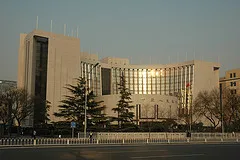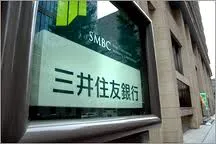China
Debt threat: Top 5 Chinese banks face massive bad debts
Debt threat: Top 5 Chinese banks face massive bad debts
Shares of China's five biggest banks lost an average 22% in 2011 on concerns that a record two-year credit boom may unravel and lead to rising bad debts.
Metrobank opens branch in Changzhou
Metrobank now has a branch in Changzou, Jiangsu province, to provide financial services for more than 68,000 SMEs.
ABC to enhance cooperation with MBA schools and banks to develop talents
ABC wil deepen its cooperation with Ivey Business School and Bank of Montreal to develop talents, according to Mr. Zhang Yun, President of ABC.
ICBC rolls out bill poll service for corporate customers
ICBC launch of bill pool service nationwide specially for corporate clients who demand for cash management service.
ICBC rolls out fast service for small payments
ICBC rolled out an online fast service for small payment that enables customers to make small payments for online shopping or other e-commerce activities.
People's Bank of China to create $300b investment vehicle
According to Reuters, the vehicle will target investments in the US and Europe.
China headed for a banking crisis
61% of global investors predict that the country will face a crisis within the next five years.
GRGBanking’s ATM location analyzer pilots in Turkey
F@ST Abacus was employed by a Turkish bank to manage its off-site ATM location selection process.
Japanese, Chinese banks among leaders in coal plant financing
Chinese and Japanese banks are among the top 20 coal financing banks, along with those from the US, UK, Germany, France, Switzerland, and Italy.
Only 2 Chinese banks get S&P upgrade
Only two Chinese banks, Bank of China and China Construction Bank, were upgraded by Standard&Poor's, reports Xinhua News.
Bank of China's profit after tax up by 22%
Bank of China recorded a profit after tax of RMB101.28 billion in the first three quarters, an increase of 22.09% compared with the same period of 2010.
ABC's credit card intermediary services income up 128%
ABC realized a credit card income of RMB6.55 billion in the first three quarters this year.
ABC focuses on boosting international trade finance
The volume of international trade finance transactions conducted by ABC amounted to USD72.4 billion, representing a year-on-year increase of 94%. Its balance of trade finance transactions in domestic and foreign currencies was USD19.85 billion, up 51.7% over the beginning of the year.
Bank of China, Sumitomo to cooperate in yuan business
BoC and SMBC will cooperate on yuan-related business to accomodate increasing trade between China and Japan.
China issues 2.81 billion bank cards by end of September
China issued 2.81 billion bank cards as of the end of the third quarter, up 4.9 percent from the end of June.
China's reserve ratios for cooperative banks to go down
China’s central bank said the requirement for reserve ratio of 16.5 percent for more than 20 rural cooperative banks will expire this month, and it will revert back to 16 percent.
China and Hong Kong renew currency swap agreement
The People's Bank of China and the Hong Kong Monetary Authority have signed a renewed currency swap agreement for a term of another three years.











 Advertise
Advertise















Commentary
Why APAC banks must rethink their approach to the cost reduction challenge
Thailand backs major conglomerates for digital banks but risks stifling innovation